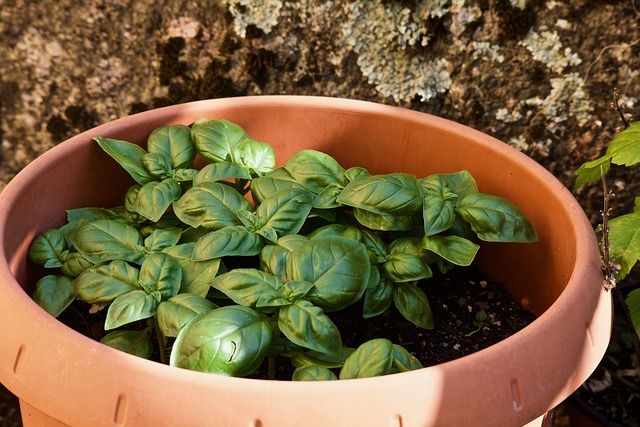Basil, with its aromatic leaves and delightful flavor, is a favorite herb for many gardeners and culinary enthusiasts. However, basil is a warm-season herb that thrives in the summer months. As the temperatures drop and winter approaches, basil plants face challenges that can make it difficult for them to survive. In this guide, we will explore the possibilities of basil surviving the winter, both indoors and outdoors. We will dive into the factors that affect basil’s ability to withstand cold temperatures, as well as tips and techniques for overwintering your beloved basil plants successfully.
Can Basil Survive Winter Outdoors?
Basil is a tender herb that is native to tropical regions, and it is highly sensitive to cold temperatures. In most cases, basil will not survive the winter outdoors in regions with freezing temperatures. However, there are some factors and strategies to consider if you want to give your outdoor basil plants a fighting chance.
- Climate Zone: Your geographical location plays a significant role in determining whether basil can survive the winter outdoors. Basil is an annual herb, meaning it completes its life cycle in a single year. It thrives in USDA hardiness zones 10 and 11, where temperatures rarely dip below freezing. In these zones, basil may continue to grow and produce throughout the year. In colder zones, especially those with harsh winters, basil is unlikely to survive without protection.
- Frost Protection: If you live in a climate with mild winters and occasional frost, you can try providing some frost protection for your basil plants. Covering them with a frost cloth or a layer of mulch can help to insulate the plants and prevent frost damage. However, this method may not be sufficient in regions with prolonged freezing temperatures.
- Container Gardening: Growing basil in containers allows you to move the plants indoors during the winter months. This flexibility can help protect your basil from harsh outdoor conditions. Simply bring your potted basil indoors before the first frost, and it can thrive on a sunny windowsill or under grow lights.
Can Basil Survive Winter Indoors?
Overwintering basil indoors is a popular option for gardeners who want to enjoy fresh basil year-round. By providing the right conditions and care, you can successfully grow basil indoors during the winter months.
- Transplanting: To transition your outdoor basil to an indoor setting, it’s essential to transplant it into a suitable container before the first frost. Choose a pot with good drainage and use well-draining potting soil. Carefully dig up your basil plant, being sure to include as much of the root system as possible, and replant it in the container.
- Light Requirements: Basil requires plenty of sunlight to grow indoors. Place your potted basil in a sunny location, such as a south-facing window, where it can receive at least 6-8 hours of sunlight per day. If natural light is insufficient, consider using grow lights to supplement.
- Temperature and Humidity: Basil thrives in warm temperatures between 70°F to 80°F (21°C to 27°C) and prefers higher humidity levels. Try to maintain a consistent temperature and provide humidity by placing a tray filled with water and pebbles near your basil plant. As the water evaporates, it will increase the humidity around the plant.
- Watering and Pruning: Keep the soil evenly moist but not waterlogged. Basil prefers to dry out slightly between waterings. Be mindful not to overwater, as this can lead to root rot. Additionally, regular pruning of your basil plant will encourage bushier growth and prevent it from becoming too leggy.
- Fertilizing: Fertilize your indoor basil plant every 2-4 weeks with a balanced, water-soluble fertilizer. Follow the manufacturer’s instructions for dilution and application.
- Pest Control: Indoors, basil can still be susceptible to pests like aphids and whiteflies. Inspect your plant regularly and address any pest issues promptly using natural remedies or organic insecticides.
Tips for Successfully Overwintering Basil
Whether you choose to keep your basil outdoors with protective measures or bring it indoors for the winter, here are some additional tips to help ensure its survival:
- Harvest Before Winter: Before the first frost, consider harvesting as much basil as you can. You can freeze or dry the leaves for later use. This way, you can enjoy your basil throughout the winter without worrying about the plant’s survival.
- Prune and Pinch: Regularly prune and pinch back your basil to encourage branching and prevent it from becoming too tall and leggy. This will also help the plant focus its energy on producing new growth.
- Propagate Basil: To ensure a continuous supply of basil, take cuttings and propagate new plants. This can be especially useful if your basil plant becomes leggy or starts to decline.
- Provide Proper Drainage: Whether you’re growing basil outdoors or in containers, make sure the soil has good drainage to prevent root rot. Elevating the pots on saucers or adding a layer of gravel to the planting hole can help improve drainage.
- Monitor Moisture Levels: Avoid overwatering, as basil plants are sensitive to waterlogged soil. Water when the top inch of the soil feels dry to the touch.
- Use Organic Pest Control: When dealing with pests, opt for organic pest control methods to keep your basil healthy and chemical-free.
Conclusion
While basil is a warm-season herb that is sensitive to cold temperatures, it is possible to extend its life through the winter months with the right care and strategies. Whether you choose to protect your outdoor basil with frost cloth, transplant it into containers for indoor cultivation, or both, careful attention to its light, temperature, and moisture needs will increase your chances of successfully overwintering basil.
Ultimately, the ability to keep basil alive and thriving during the winter depends on your location, available resources, and dedication to providing the ideal conditions. With proper care, you can savor the fresh, aromatic leaves of basil even when the snow is falling outside. Whether it’s a warm bowl of tomato soup or a homemade pesto sauce, having basil at your fingertips all year round can elevate your culinary creations and brighten your winter days.








